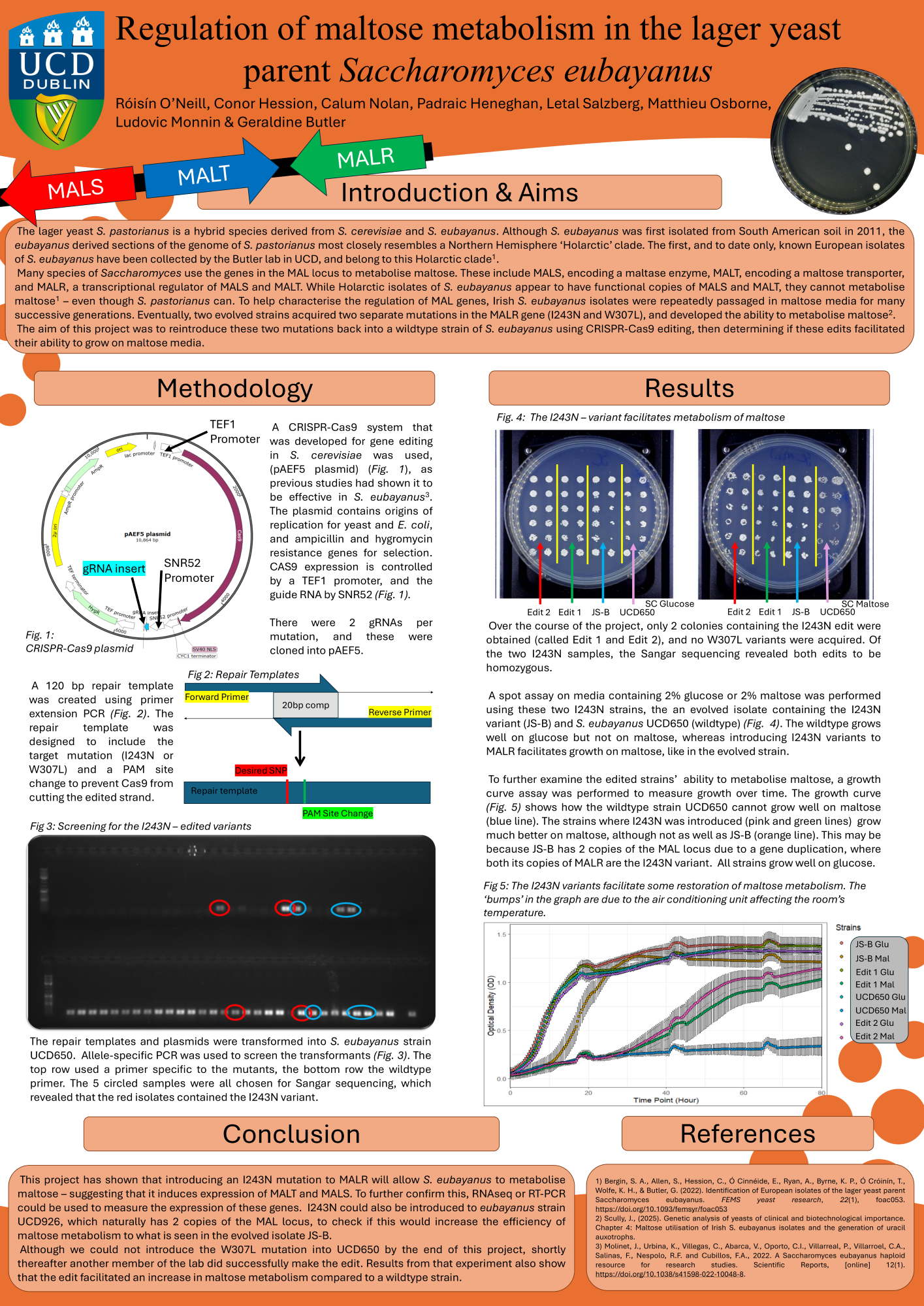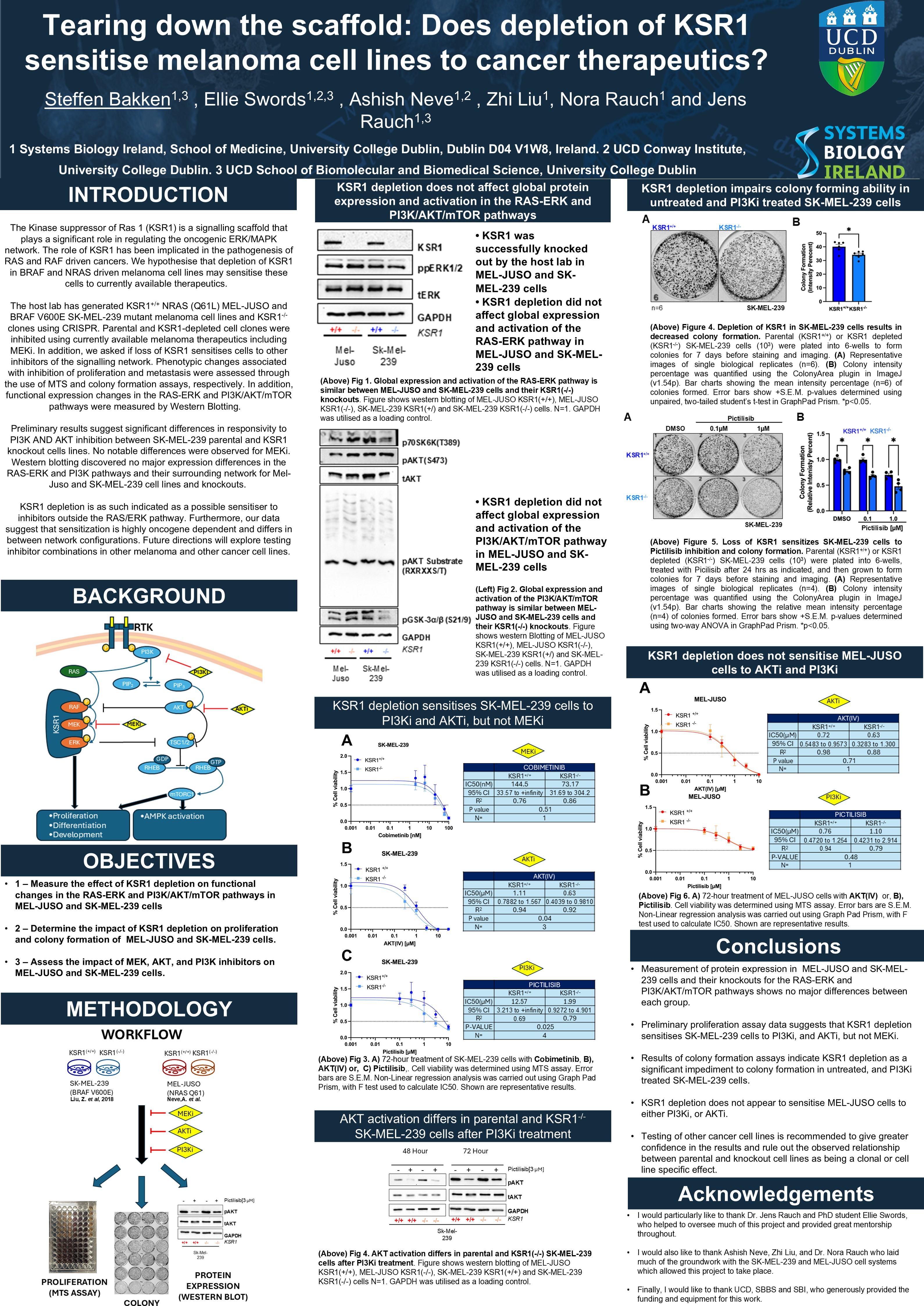
SBBS Summer 2026 Research Scholarships
Summer 2026 Research Scholarships
The School of Biomolecular and Biomedical Science wishes to support the career development of high achieving, motivated and ambitious undergraduate students by providing a number of summer research scholarships. The school is highly research intensive and special emphasis is placed on translating fundamental discoveries to a greater understanding of health and disease, with the aim of informing novel drug discovery. Awardees will gain valuable insight into the world of biomolecular and biomedical research and develop important transferable communication and leadership skills.
WHO should apply?
- The Summer Research Scholarships are open to current Stage 3 SBBS undergraduate students who are studying a full-time BSc degree course in one of the five subject areas offered within the School; Biochemistry and Molecular Biology, Genetics, Microbiology, Neuroscience, Pharmacology. The applicant must be available to undertake research during the Summer of 2026.
- Each applicant may submit only one application. Each supervisor may support only one student’s application
HOW to Apply :
1. Before applying: You must secure an agreement with a supervisor who has reviewed and approved your proposed project. Check the list of Interested PIs [please see below] and contact them directly.
2. Complete the Application Form: All information, including project details and your CV, must be submitted through the online form before the closing date.
🚨 Deadline: Friday, 13th February 2026 🚨
3. The following Principle Investigators (PIs) have expressed an interest in supervising a summer project. For PI research area and contact details please click on their research profile links below
- (opens in a new window)David O’Connell
- (opens in a new window)Geraldine Butler
- (opens in a new window)Eric Conway
- (opens in a new window)Mario Manresa
- (opens in a new window)Maria Prencipe
- (opens in a new window)Jana Haase
- (opens in a new window)Rebecca Henry
- (opens in a new window)Niamh O'Sullivan
- (opens in a new window)Colm Collins
- (opens in a new window)William Gallagher
- (opens in a new window)Jamie McGowan
- (opens in a new window)Luke Johnson
- (opens in a new window)Jennifer Mitchell
- (opens in a new window)Cormac Murphy
- (opens in a new window)Tanya Narancic
- (opens in a new window)Margaret McGee
- (opens in a new window)Jens Rauch
- (opens in a new window)Gary Brennan
- (opens in a new window)Tadhg Ó Cróinín
- (opens in a new window)Wim Meijer
- (opens in a new window)Siobhán McClean
- (opens in a new window)Oliver Blacque
- (opens in a new window)Karen Lange
- (opens in a new window)Breandán Kennedy
- (opens in a new window)Patricia Maguire
- (opens in a new window)Yan Yan
In the meantime we are delighted to feature some blogs from our 2025 Summer Scholars:

Summer 2025 Research Scholar Blog – Róisín O’Neill
Exploring yeast genetics withUCD School of Biomolecular and Biomedical Science (SBBS UCD)
“The highlight of the project was definitely when we proved our hypothesis.”
For my project, I spent 8 weeks over the summer working with the Butler lab to investigate maltose metabolism in the yeast speciesSaccharomyces eubayanus. As one of the parent species toS. pastorianus, a lager yeast used in breweries,S. eubayanusis studied to learn more about the brewing process. WhileS. pastorianuscan grow on the sugar maltose, the strains ofS. eubayanusfrom which it’s derived cannot. Our hypothesis was that by introducing specific mutations into a gene responsible for regulating the production of maltose enzymes and transporters, the cells would gain the ability to metabolize the sugar.
During this project I was able to perform many experiments to help test this hypothesis, such as CRISPR-Cas9 gene editing, cell culturing, DNA extraction and growth assays. I was in the lab everyday helping to carry out the experiments, which allowed me to get familiar with lab procedures and equipment. I also had the opportunity to present my findings to the lab group, as well as design a poster presentation to give on the topic. Overall this experience allowed me to discover which aspects of lab work I like best, and to decide what I wanted to do in the future.
The highlight of the project was definitely when we proved our hypothesis - after introducing the mutation into the gene that regulates maltose enzymes, our growth assays showed us how the edited cells could metabolize maltose much more efficiently than the wildtype strain. I loved being able to work towards this goal in the lab, then achieve the result we were hoping for by the end of it - this was certainly one of the largest projects I’ve worked on thus far in my degree so to see it all come to fruition was very rewarding.
I would absolutely recommend applying for the summer research project, it is a great way to find out if lab work or research is for you. It’s a very different experience to the usual weekly practicals done during term, and it gives you a better feel for how real labs operate. Overall I found the summer research project to be thoroughly enjoyable and hope others are inspired to do it too!
—Róisín O’Neill

Summer 2025 Research Scholar Blog – Steffen Bakken
Investigating cancer therapeutics withSystems Biology Ireland & SBBS UCD
“It was a great feeling knowing that I was working on something no one had done before.”
This summer, I worked on an 8-week research project in Systems Biology Ireland alongside my supervisor Dr. Jens Rauch, and his PhD student, Ellie. We were investigating how the depletion of a protein called KSR1 might affect melanoma cell lines, with the hope that it would make them more sensitive to existing therapeutics. Drug resistance in melanoma is a major issue, and as such the discovery of a sensitising agent could have real clinical value.
I made sure to keep my expectations in check at the start, knowing that the chances of making a breakthrough would be low. Much to my amazement, depleting KSR1 actually seemed to sensitise these melanoma cells to certain inhibitors. Further testing over the next few weeks utilising other assays continued to support this finding. It was a great feeling knowing that I was working on something no one had done before, and that my work may have made a real contribution to improving cancer treatment in the future. I made a poster of this work which I presented to the Stage 3 students, and then later at the Conway Festival.
It was exciting to work in a real lab environment with other passionate researchers. I was treated like an adult, and trusted to work independently once I became familiar with each assay. Being given this level of responsibility helped grow my confidence in my own abilities, as I knew that if an experiment had worked, I could take pride in the fact that I was the one to make it happen.
Everyone in the lab was extremely welcoming, and you could feel a real sense of teamwork and camaraderie. If you made a mistake or ran into an issue, there always seemed to be someone nearby willing to help.
I had a wonderful experience doing this project over the summer. I had fun, learned many things I otherwise wouldn’t have and got to experience what being a researcher is like. I would recommend the SBBS scholarship in a heartbeat to any other students who may be interested in the years ahead.
—Steffen Bakken
